The 25 best TV shows of 2019
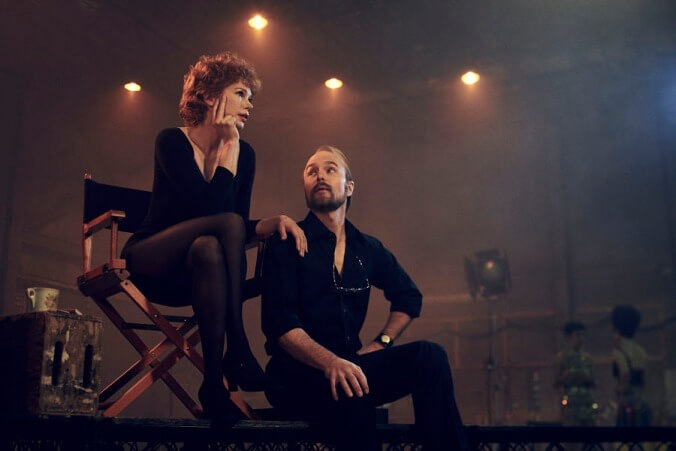
In our look back at the best television of 2019, we’ll spare you the requisite references to “peak TV” and the 500-plus scripted series that aired or streamed this year, because nothing demonstrates that magnitude quite like lining up our mid-year findings with our year-end list. Some early contenders, including a fantastically awkward Hulu series and a stalwart sitcom, weren’t able to cross the finish line, while others, like an empathetic drama about egotistical lovers, saw a surge late in the year. It’s not that these shows were forgotten, or even replaced, really; they just became part of a bigger picture, one that now included some highly anticipated arrivals and poignant swan songs along with genre-breaking and life-affirming series. And, as our ballots show, there were bright spots and showstoppers for virtually every day of the year.
Update Mar. 21, 2020: We’ve added where to stream the series that weren’t already streaming.
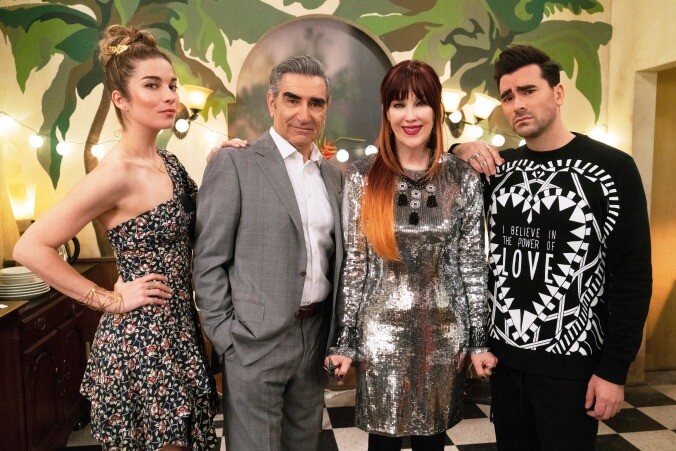
Bookended by two of the year’s standout show-within-a-show performances—Moira (Catherine O’Hara) finding pathos in her The Crows Have Eyes III: The Crowening nest and Stevie (Emily Hampshire) bearing her heart in her community-theatre debut as Sally Bowles—season five of Schitt’s Creek was its best yet. The show’s effortless blend of ridiculous, fish-out-of-water comedy and heartfelt humanity was on full display, from Alexis’ (Annie Murphy) memorable audition to “A Little Bit Alexis” to Johnny’s (Eugene Levy) concern over a “whisper of desire” to the stunning reveal of Moira’s red-carpet gown. The hilarious, delightful comedy that threads throughout the season would be enough to earn the show a place on this list, but season five also flexed its dramatic muscles to great effect in “Meet The Parents,” which tackled Patrick (Noah Reid) coming out to his parents, and “The Hike,” which saw Patrick guiding ultimate indoor kid David (Dan Levy) on a seemingly doomed hike, culminating in one of the most affecting TV proposals in recent memory. It may excel at the broad comedy that comes with its larger-than-life characters, but Schitt’s Creek never loses sight of the power that tiny moments of connection bring, pairing these to create some of the best television of 2019. [Kate Kulzick]Seasons 1-5 available on Netflix.
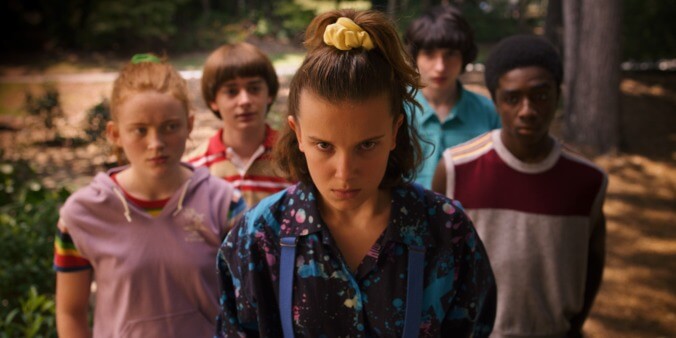
It’s easy to scoff at Stranger Things’ relentless fetishization of bygone genre fare, especially in an era when remakes, reboots, and reimaginings have a chokehold on Hollywood. But doing so diminishes the affection Matt and Ross Duffer have for their characters, a ballooning ensemble that takes on more dimension with every season. Sure, David Harbour’s Hopper was kind of an asshole and Priah Ferguson’s Erica tried way too hard to be a meme, but this thrilling batch of episodes tossed a grenade into our core gang of teens, blessed local bully Billy with a scary, surprisingly powerful arc, and, with an assist from Maya Hawke’s Robin, elevated Steve Harrington (Joe Keery) into more than a haircut. It also broadened the scope, with a friggin’ Terminator serving to introduce ’80s-era action tropes into a narrative primarily influenced by sci-fi and horror. Stranger Things is ultimately an exercise in balance—the ingenuity outweighs the appropriation, just as the emotions ground the absurdity. What could’ve been a nostalgic throwaway has evolved into a robust piece of standalone storytelling, one that doesn’t rely on tropes so much as it reshapes them. More genre producers should take note. [Randall Colburn]
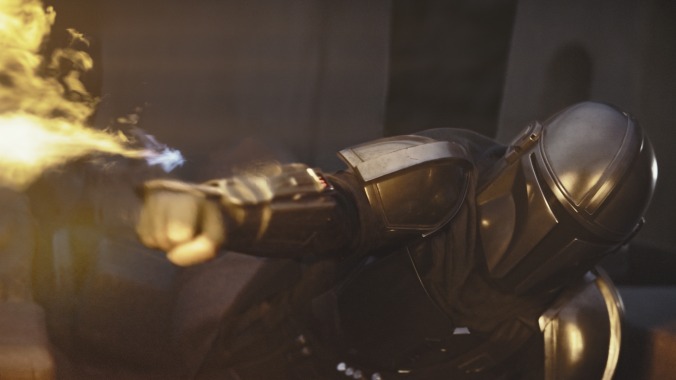
Jon Favreau brilliantly creates an “unlikely hero” sandwiched between an extension of the Star Wars universe and the classic Western trope with Disney’s The Mandalorian. Pedro Pascal stars as a nameless (other than the nickname “Mando”) Clint Eastwood-esque bounty hunter who belongs to a small tribe of surviving mercenaries from the planet Mandalore in a post-Empire era. Each weekly episode only gives you a glimpse of our hero’s past, while also dropping hints as to what the current state of the galaxy is. Somehow, the show manages to successfully convey a range of emotions and carry character development without revealing its lead’s face or having his adorable co-star (that would be, you guessed it, Baby Yoda) make more than a few noises. It also finds a not-so-subtle way of making the Star Wars Holiday Special canon. Favreau not only leaves the playing field open for the numerous possibilities in this new galactic storyline, but it’s obvious he is having fun doing so. As the first live-action Star Wars television series and one of Disney’s prized shows on its new streaming platform, The Mandalorian has quickly became a pop culture phenomenon— Baby Yoda and all. [Angelica Cataldo]
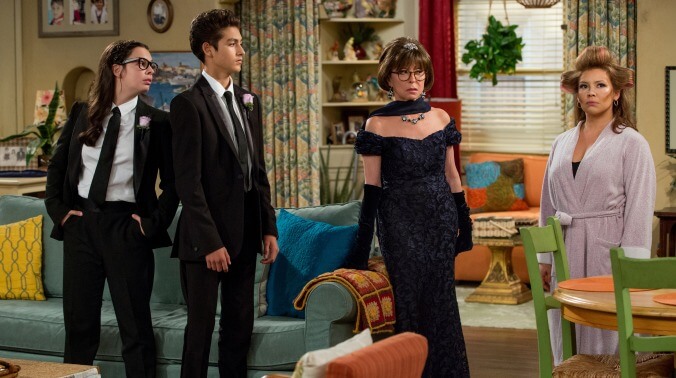
In its third season, One Day At A Time continued to deftly explore the inner workings of a loving but complicated family, touching on mental health, immigration, dating, aging, and so much more along the way. The show packed so much into every episode, teaching without preaching. Its portraits of sex, sexuality, and gender at different age levels—including Penelope (Justina Machado) still learning to set boundaries and Elena (Isabella Gomez) contemplating having sex for the first time with her nonbinary partner Syd (Sheridan Pierce)—are nuanced and realistically messy. But the season’s apex is “Anxiety,” an episode so steeped in its namesake that it affects the show’s tone, visuals, character, and story. Anxiety and PTSD touch everything in Penelope’s life, so One Day At A Time makes it touch every component of this episode. And Elena’s own mental-health struggles surface, making for an even wider-reaching narrative on anxiety and intergenerational conflict. Usually the butt of the joke, Schneider (Todd Grinnell) gets his weightiest storyline yet. But the show’s darkness is balanced by its levity: a strong sense of humor (especially thanks to Rita Moreno and Machado) and empathetic storytelling that gets to the heart of these characters. [Kayla Kumari Upadhyaya]
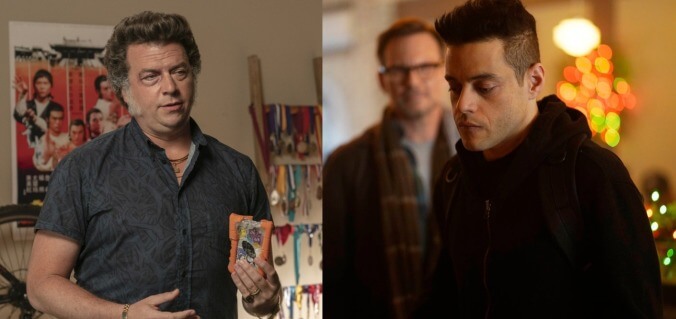
It speaks to the amount of good shows on the air that both The Righteous Gemstones and Mr. Robot aren’t ranked higher on this list. Quibbling with rankings will get you stuck in a subjective, never-ending loop, but both of these shows managed to be the purest, most entertaining versions of their creator’s visions to date. The Righteous Gemstones is the best of the three Danny McBride collaborations with Jody Hill and David Gordon Green. It’s the story of a wealthy, powerful evangelical family that explored ideas of family dynamics, faith, greed, and fame. The Righteous Gemstones gets top-shelf performances from its stellar cast: Walton Goggins as the sly, foul-mouthed uncle who wants in on the riches; John Goodman as the soulful but intimidating patriarch who’s become unmoored since his wife died; as the insecure, conflicted outcast of the family; and McBride himself, who brings a certain gravitas to the show’s look at father-son relationships. The Righteous Gemstones struck the perfect balance between comedy and drama. It’s a shame that Mr. Robot fell away from the spotlight a bit—partly because of an underwhelming reception to the second season (which I personally think is very good), and partly because there’s just so much to watch—because it’s quietly delivered one of the best final seasons of all time, right up there with the likes of , , and . Not only did the show remain visually ambitious and thematically sharp, but also the final season closed out its character arcs with real emotional nuance, showing that amongst all the political revolutions and anti-capitalist messaging was a character-driven show about finding connection and meaning in a system that’s designed to keep you isolated and desperate. [Kyle Fowle]Mr. Robot is available in Amazon Prime Video. The Righteous Gemstones is available on HBO Now.
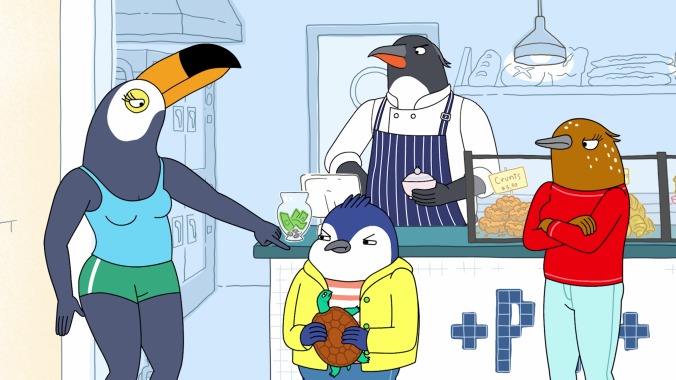
Few TV shows seemed quite as poised to be a hit in 2019 as Tuca & Bertie. Lisa Hanawalt’s animated series was set in just as wildly inventive a world as the one she helped create in BoJack Horseman; though it was worlds away from that Hollywood satire, Tuca & Bertie produced its own resonant commentary about abusers (influential and otherwise), unequal workplaces, and who gets to be centered in those stories. Tiffany Haddish and Ali Wong voiced the eponymous best friends with verve and pathos, finding connections to both their previous work in films like and specials like Baby Cobra, as well as a connection to each other. It was a transportive series, both for its flights of fancy and its fearless storytelling, two elements that combined to make “The Jelly Lakes” one of the most beautiful and heartbreaking episodes of the year. Though Netflix canceled the show, we don’t mourn Tuca & Bertie; instead, we commend Hanawalt, Haddish, Wong, and the rest of the team for creating a comedic pairing as iconic as Laverne and Shirley, and as relatable and Ilana and Abbi. [Danette Chavez]
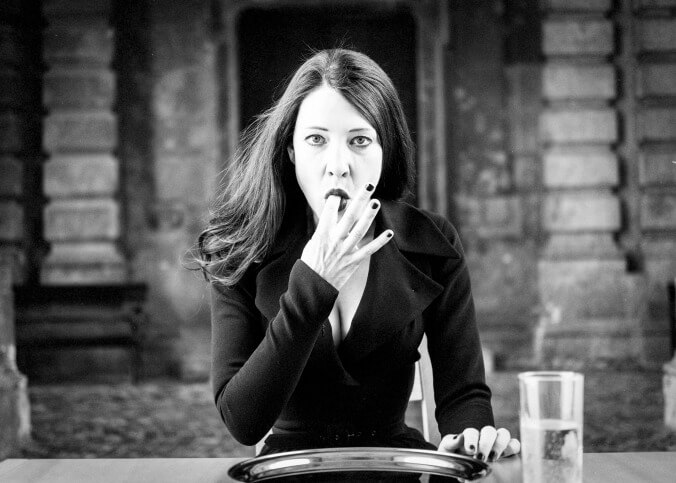
Inspired at least in part by the inescapable practicalities of TV production—most notably, Bill Hader’s well-earned but time-consuming appearance elsewhere on this list—Documentary Now!’s third season saw the series move away from relying solely on Hader and Fred Armisen’s comic energies, in favor of pulling in a much wider array of guest-star talent for its increasingly ambitious slate of nonfiction spoofs. Standouts of the season include Cate Blanchett’s pseudo-Marina Abramović—equal parts ridiculous and human—in “Waiting For The Artist,” as well as a feature-film-sized ensemble (Owen Wilson, Michael Keaton, Necar Zadegan) powering the season opener, “Batsh*t Valley.” But the most obvious winner is “Original Cast Album: Co-Op,” which starts from an absurdly winning premise (John Mulaney writes a fake Sondheim musical about miserable New York apartment dwellers) and then ascends into ever-grander heights of musical absurdity. It’s also pretty damn catchy. But, then, that ability to not just recreate, but often out-do, the realities it seeks to emulate has always been one of this show’s secret and most winning strengths.[William Hughes]Now available on Netflix.
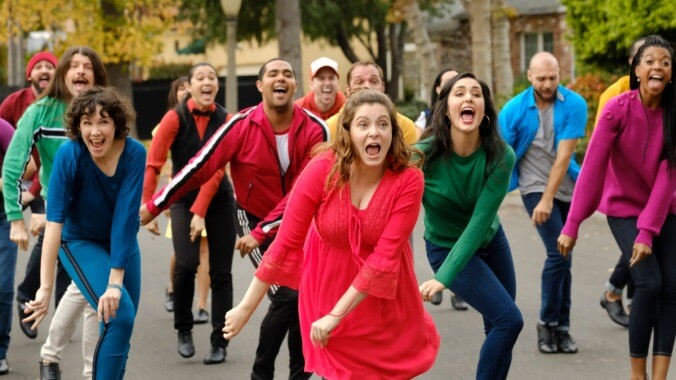
The CW’s phenomenal rom-com deconstruction Crazy Ex-Girlfriend aired half of its final season in 2018, but its placement on this list is a testament to just how well it pulled off the conclusion of Rebecca Bunch’s journey toward becoming a better person. In the final episodes, Rachel Bloom’s Rebecca weighed her romantic options between three equally viable suitors, accepted that it’s totally normal to take anti-depressants, finally achieved her dream of going to Raging Waters, and decided to use the over-the-top songs that are constantly playing in her head (a direct acknowledgement of the show’s musical conceit) as inspiration for an actual career in musical theater. Rebecca rejected all of her potential love interests in the end, but not in a way that turned a chunk of the preceding episodes into a total waste of time. Instead, Crazy Ex-Girlfriend’s refusal to follow through on its rom-com premise (despite dividing both viewers and characters alike into Team Nathaniel, Team Greg, and Team Josh camps) felt like a smart and natural reflection of the journey that Rebecca herself went on. There will never be anything else like Crazy Ex-Girlfriend. [Sam Barsanti]Now available on Netflix.
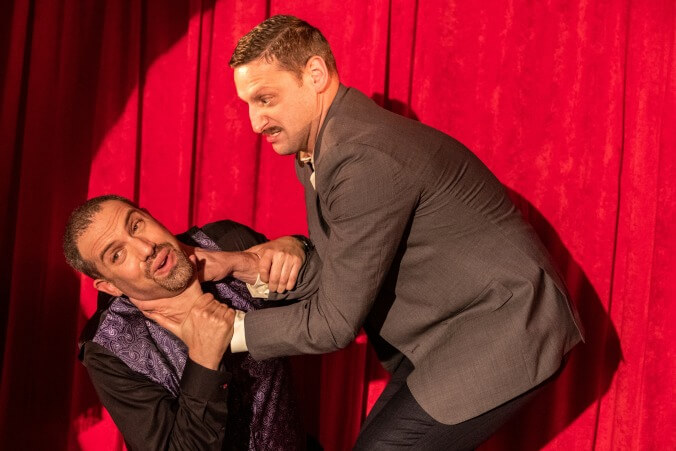
There are plenty of talented writers and performers who never quite clicked on but then went on to success elsewhere, but Tim Robinson’s I Think You Should Leave is a uniquely defiant sort of triumph. A six-episode sketch showcase all built around the ingeniously off-putting, singularly strange sensibilities of the former SNL featured performer, this Netflix series offers up nothing but unfiltered Robinson, holding down the sort of 10-to-one sketch premises his former TV home traditionally—even understandably—shaves off of its more viewer-friendly design. Picking up from his gleefully weird episode of Netflix’s , Robinson’s collection of sketches swerve inexorably into its characters’ frantic need to not be the butt of the joke, all while Robinson’s pop-eyed gaze becomes ever more glassy with the dawning certainty that there’s no steering out of the skid. Gathering others similarly and constitutionally prone to pushing comic ideas deep into the red of viewers’ comfort meters (Will Forte, Tim Heidecker, Vanessa Bayer, Fred Willard, Kate Berlant, his partner, Sam Richardson), Robinson’s playlets of exquisite humiliation, sweaty denial about humiliation, and scatological obsession take cringe comedy into undiscovered realms of discomfort, while still, in Robinson’s Mad Magazine-pliable countenance, finding the human comedy in universal embarrassment. Only more so. [Dennis Perkins]
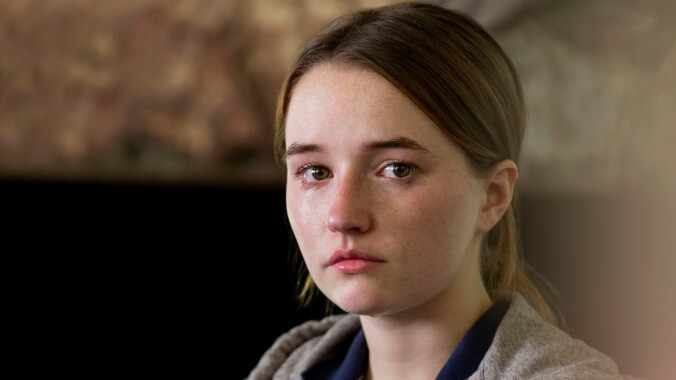
Yes, Unbelievable is hard to watch. It’s about rape—specifically, from ProPublica and The Marshall Project. Yet it stands out from many other such stories because showrunner Susannah Grant and company show absolutely no interest in demonstrating through the torment of its characters the horrors of rape. It’s deeply affecting, but it does not glory in suffering. Instead, it methodically picks apart the staggering violations that often occur after the first big violation: the systemic and human failures that leave women like Marie (Kaitlyn Dever) alone, ostracized. It underlines those failures through contrast, splitting its narrative between Marie and two detectives (Toni Colette and Merritt Wever) working to find a serial rapist several states over. There’s a didactic streak of do-this-not-that, but it’s neither self-satisfied nor preachy. Nor does that streak prevent the series from being, at its core, a terrific piece of storytelling. The performances are splendid, the cast top-notch—Danielle Macdonald! Dale Dickey! Annaleigh Ashford!—and the procedural elements as gripping as any on TV. But Unbelievable’s most remarkable quality is the choice to treat Marie like more than the worst thing that happens to her. Unbelievable is hard to watch, but it’s also hopeful. What a concept. [Allison Shoemaker]
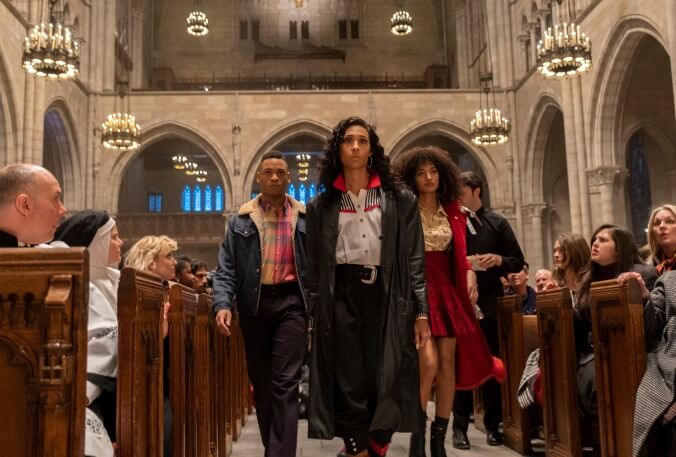
Already impossibly stylish and gracious, Pose stepped things up in its second season, offsetting its LGBTQ+ history lesson with deeper dives into the inner lives of the folks dancing up a storm in the ballroom scene. A time jump into the ’90s provided a perfect setting for an exploration of allyship and appropriation—the lyrics to “Vogue” captured life for the originators of that dance craze, while doing little to raise visibility—but Ryan Murphy, Brad Falchuk, and Steven Canals put personal ambitions and family matters at the forefront. House Of Evangelista became an empty nest for Blanca (MJ Rodriguez), as Damon (Ryan Jamaal Swain), Angel (Indya Moore), and Li’l Papi (Angel Bismark Curiel) all left to pursue their dreams, but not before she could impart a few more lessons on her children. The dance floor bred rivalries, romances, and resentment, leading to some high melodrama and season-high moments, including Pray Tell’s (Emmy winner Billy Porter) first time on the runway. The cast became even more cohesive, while still allowing room for Rodriguez, Porter, and Moore to stand out. In short, Pose showed the same growth it affords its characters, which makes the already-ordered season three that much more exciting of a prospect. [Danette Chavez]Now streaming on Hulu.
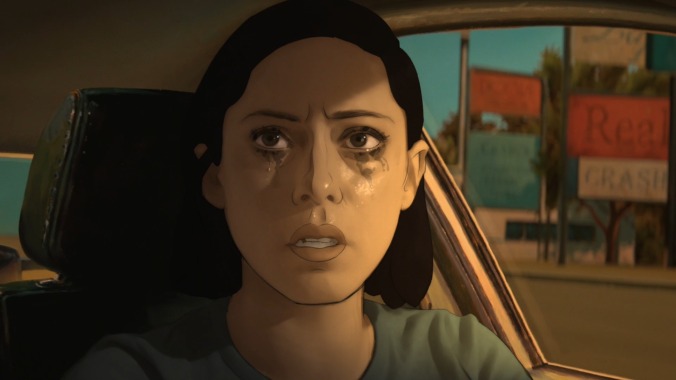
In a television landscape littered with reboots, revivals, and needless rehashing, Raphael Bob-Waksberg and Kate Purdy’s Undone felt like a breathtaking anomaly. The premise, that of a woman training her consciousness to guide her back in time in order to stop her father’s alleged murder, appears ambitious early on. The result, however, is a stunning view of Alma’s (Rosa Salazar) journey as she confronts trauma, mental illness, and a deep dissatisfaction with her life. The marriage between this exceedingly talented cast’s grounded performances and the untethered visuals offered by rotoscope animation bring something unlike anything we’ve seen on television in a long time, and it emphasizes just how much of a gift true, honest-to-goodness originality really is. What’s more, this sci-fi bolstered wonder is an ideal example of just how animation can elevate a story rather than be used as a method to camouflage its shortcomings. Each actor and their award-worthy performances is just as captivating as they presumably would be with any live-action drama, only now a few digital strokes of a skilled animator’s brush gives them the imaginative, otherworldly stages they so richly deserve. [Shannon Miller]
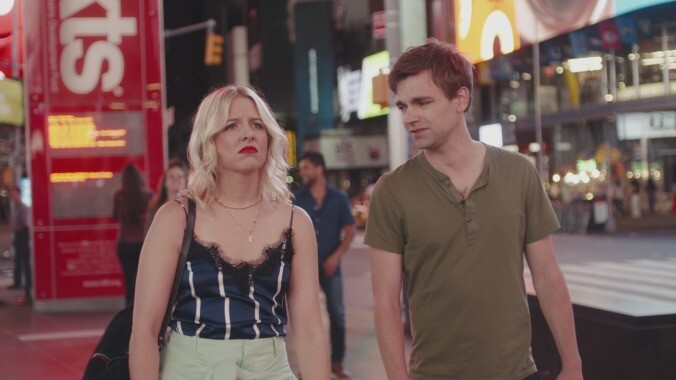
Even though it premiered all the way back in January, The Other Two was one of the biggest surprises of all of 2019. Instead of going the obvious route—with Brooke (Heléne Yorke) and Cary (Drew Tarver) resenting famous younger brother ChaseDreams (Case Walker), Pat (Molly Shannon) being a stage mom caricature, or Chase being a secret monster—The Other Two ended up being a satire with a ton of heart. In fact, only Schitt’s Creek would challenge it on the comedy and heart front this year, and it could go either way. (While The Other Two won out here, we’d still love to see vs. in a battle to the death.) The Other Two’s first season was impressive in its confidence and self-assuredness, in its automatic understanding that edginess and whip-smart don’t have to come from a negative place; they can still exist without being sappy or toothless. [LaToya Ferguson]Now available on the Comedy Central app or for purchase on Amazon and YouTube.
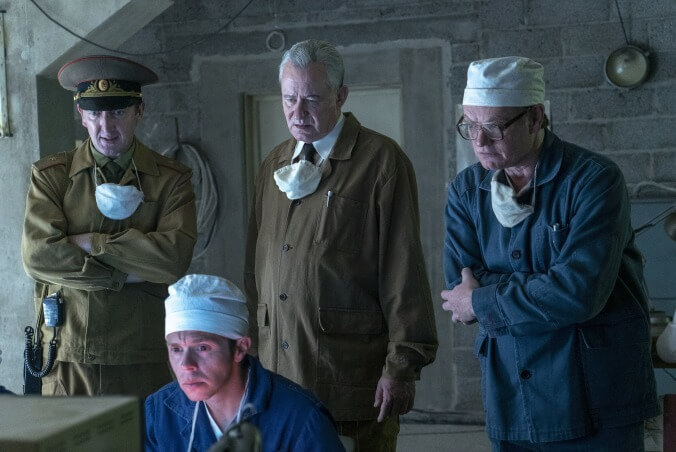
It was an unexpectedly big year for the creative forces behind the Hangover movies. As director Todd Phillips found divisive success with , screenwriter Craig Mazin (who co-wrote the second and third Hangover films) enjoyed even more universal acclaim with his HBO miniseries, Chernobyl. The five-episode look at the 1986 Chernobyl nuclear disaster became an unexpected hit over the summer, captivating a far broader audience than even had imagined. Rather than turn the historical drama into a condemnation of the Soviet Union alone, Mazin digs into universal themes about political arrogance, environmental catastrophe, and human heroism—particularly from the scientific community. Anchored by captivating performances from Jared Harris and Stellan Skarsgård, Chernobyl brilliantly utilizes the miniseries format to capture multiple perspectives on the crisis and its aftermath. From its explosive opening moments to scenes of everymen conscripted into scooping irradiated debris into an open nuclear reactor, few shows this year have been as skin-crawlingly terrifying. Yet Mazin ensures that Chernobyl does more than just gape in horror at the past. It says something about the present, too. [Caroline Siede]Now available on HBO Now.
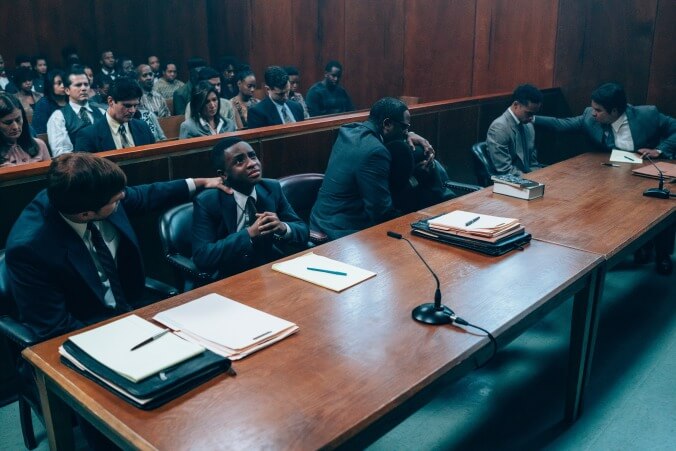
There are two historical miniseries in our top 10 that trace the catastrophic effects of human ego and malfeasance in harrowing detail. In Chernobyl, it is ground zero of a Russian nuclear disaster; in When They See Us it’s the ongoing fallout of a disastrous American justice system. Where typically police and judicial procedure on TV unfolds from the glorified perspective of the state, Ava DuVernay’s Netflix series centers the experience of the young Black and Latinx men coerced and wrongly convicted in the 1989 Central Park jogger case. Jharrel Jerome won the show’s sole Emmy this year for , whose extended sentence in adult prison is the focus of excruciating standout episode four, but truly the entire cast delivers searing performances to tell the stories of Wise, Kevin Richardson (Asante Blackk), Antron McCray (Caleel Harris), Yusef Salaam (Ethan Herisse), and Raymond Santana (Marquis Rodriguez) and the unspeakable damage to their lives, families, and communities. When They See Us asks us, at minimum, to be witness, and DuVernay makes sure it’s a sight we’ll never forget. [Kelsey J. Waite]
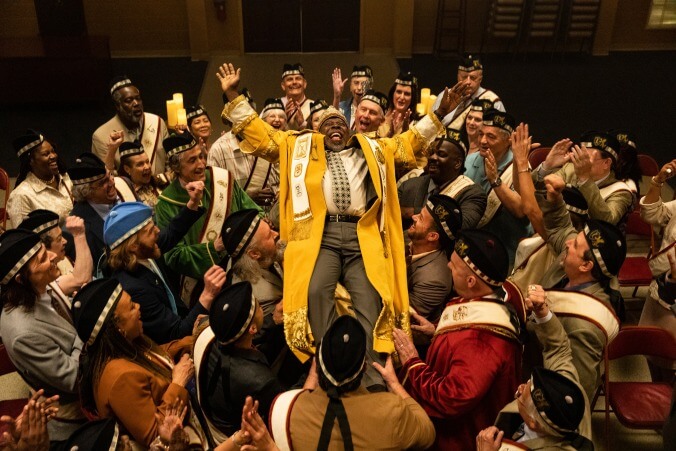
Jim Gavin and Peter Ocko’s Lodge 49 always had one foot in this world, and the other pointed toward a more just one. A fantastic cast and top-notch writing sold the elusive nature of the show in season one, but in 2019, the magic became undeniable. Some anti-capitalist sentiment ran through the dreamy AMC drama, which encouraged its cast of characters—including as the archetypal wanderer—to define themselves by something other than their assets, and with terms other than “return on investment.” But Lodge 49 always cared more about sitting with these Long Beach residents, whose livelihoods were made then destroyed by industry, than about excoriating the 1%. Season two did provide a stand-in for the executives that play roulette with the financial futures of “lesser” beings (and Olivia Sandoval made a soy-meal replacement of the role), but it ultimately offered something more cathartic than criticism: a vision of a world untethered to the bottom line. Lodge 49 didn’t pretend to have the answers to centuries of plunder, but by placing its trust in community, the show pointed us toward those who might. [Danette Chavez]Now streaming on Hulu.
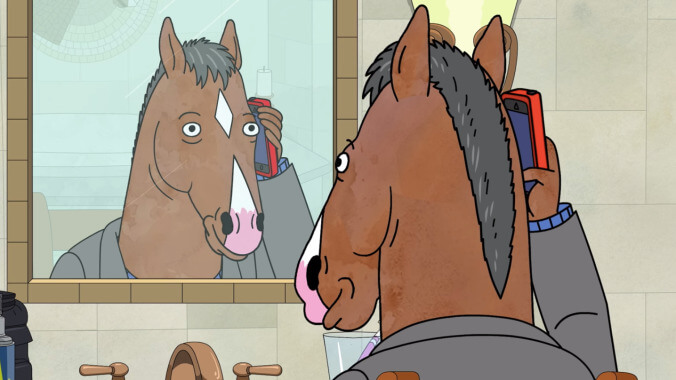
Throughout its first five seasons, BoJack Horseman thrived by telling trenchant stories about issues like addiction and mental health against the backdrop of often-absurd “Hollywoo” satire. This didn’t change in the first eight episodes of its final season, which focus on BoJack’s journey of rehabilitation, but the stakes of this project are changed by the proximity to the series’ end. As BoJack starts to take his sobriety more seriously, the show’s satire feels more deeply rooted in the characters themselves, as Princess Carolyn balances new motherhood while fighting a timely Hollywoo assistants strike and Todd’s family history serves as the engine for an organ heist. The show has always valued character over cheap laughs, but BoJack’s extended recovery sets a more reflective tone for the season as a whole, as the writers join BoJack in reckoning with the past to find a way forward. The result is an emotional gut-punch of a mid-season finale that tests BoJack’s progress, delivering a thorough accounting of people he hurt along the way. While BoJack’s reckoning will have to wait until 2020, the buildup offered some of the show’s most resonant episodes to date. [Myles McNutt]
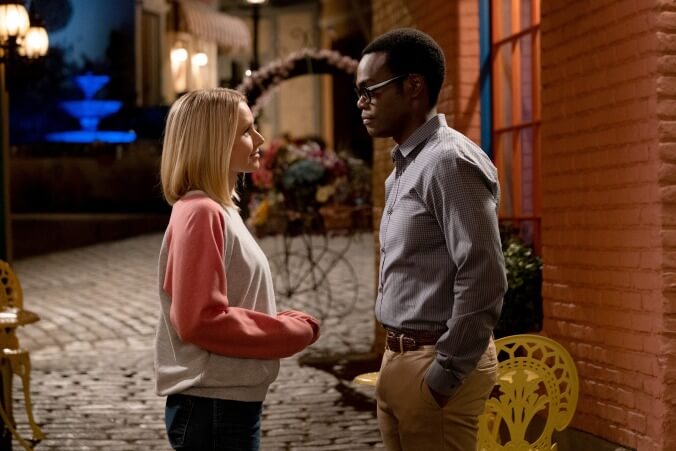
NBC’s beloved afterlife sitcom could’ve easily gone on too long. It could’ve slowed down, paced itself, and spent a season or two doing a series of genteel “life lesson” episodes in which a member of our core group of four humans—or the reformed demon Michael (Ted Danson) and all-knowing Janet (D’Arcy Carden)—encountered a problem, struggled to fix it, and got a tiny bit closer to redemption by the installment’s end. Instead, Michael Schur and company decided to keep the accelerator pressed firmly to the floor, and the result is a fourth and final season (not to mention a few absolutely killer episodes from season three that aired back in January) of The Good Place that feels as vital, funny, and heartfelt as its first. Changing the nature of the show once more, the narrative saw Maya Rudolph’s judge giving our wannabe saviors of humanity an ultimatum: Prove that people can keep getting better in the afterlife, and she’ll revise the rules that have kept anyone from going to the Good Place for centuries. The resulting tug-of-war between good and evil has made for comedy gold—not to mention one of the sharpest (and smartest) sitcoms in recent memory. It’s a Molotov cocktail of entertainment even Jason Mendoza (Manny Jacinto) would be proud to hurl through a window. [Alex McLevy]Now streaming on Netflix.
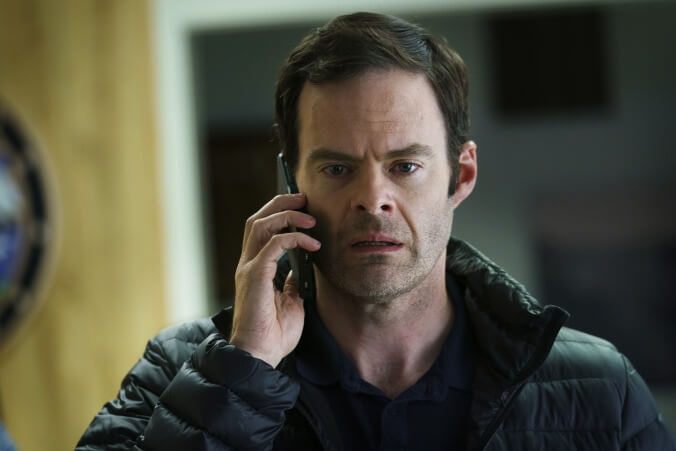
Barry co-creators Alec Berg and Bill Hader came out of the gate strong with their outstanding first run of episodes, ending the season with a pitch-black that determined its homicidal title character’s soul to be irreparably damaged. With such a conclusive statement in the rearview, the Barry team now had the burden of following up its Emmy-winning debut with a meaningful expansion of the show’s mythos. Fortunately, they delivered in spectacular fashion. Picking up in the aftermath of Janice Moss’ murder, Barry’s sophomore effort ventured into hilariously unpredictable, but increasingly bleak terrain, like the twisty Loach subplot that culminated in the season’s high-water mark “,” or the shaky Chechen-Bolivian-Burmese alliance that ended in the series’ . Bill Hader followed up his Emmy-winning performance with another measured turn, adding layers of complexity to Barry’s crisis of conscience. But the brilliance of Barry’s second season is in its supporting cast, who all brought their A-game: Henry Winkler and Stephen Root continue to play Barry’s surrogate fathers—the self-obsessed acting coach Gene and the equally self-obsessed handler Fuches, respectively—wonderfully; Sarah Goldberg absolutely shines as the internally conflicted aspiring actress Sally; and season MVP deserves all the love for his delightful turn as the disarmingly positive mobster NoHo Hank. [Baraka Kaseko]Now available on HBO Now.
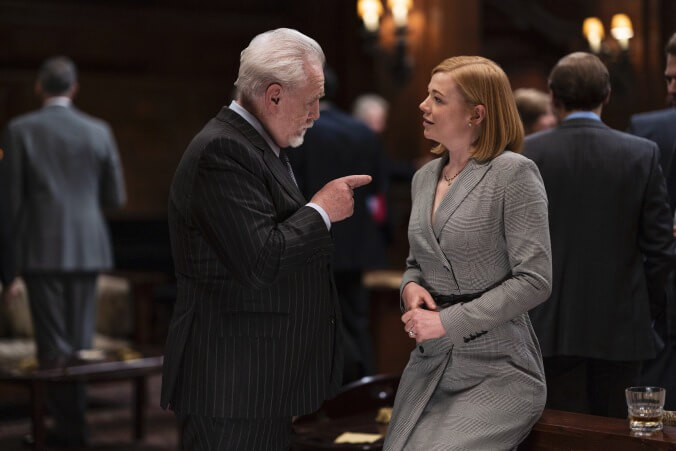
Many of us were intrigued by the 10 episodes of Succession’s sterling debut season, but this year, season two cemented our fascination with the tyrannical, dysfunctional Roy clan. Kendall (Jeremy Strong) came back into the fold—squashing a media website that —just to destroy it completely by the end as the cruise ship scandals the Roys frantically tried to bury in season one finally emerged. Greg (Nicholas Braun) proved to be even more calculating than suspected, Roman (Kieran Culkin) found new strengths in management training and a strange-yet-tenacious bond with Gerri (J. Smith-Cameron), Tom (Matthew Macfadyen)—fucking Tom—garnered the strength to tell his bride how he really felt. But really, the season belonged to Shiv (Sarah Snook), who commanded the screen the moment we all got a load of her new haircut, as her dad cruelly dangled command of the empire in front of her, only to yank it away when she became too impatient. Maybe he would have anyway. Like the Roy kids, that’s what keeps us drawn in: In the wake of ’ end, the Roy family ably filled the need for intense HBO Sunday-night family drama, as Logan’s offspring scrambled for his approval even as he lined them up like the pawns they are, with sincere affection possible but much too fleeting. And the Lannisters never had anything as tremendous as Kendall’s rap. [Gwen Ihnat]Now available on HBO Now.
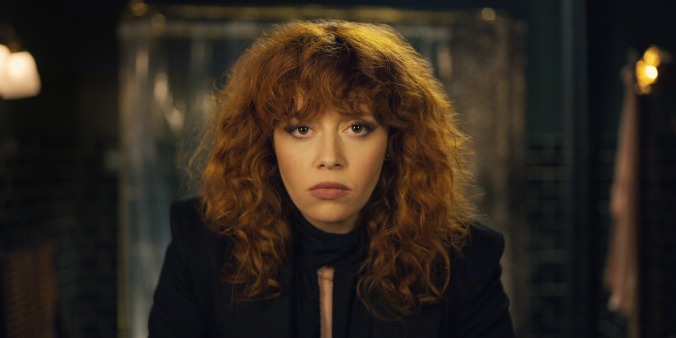
Russian Doll takes on universal themes like regret, loneliness, and the wounds of childhood, but it’s at its best when it remains defiantly particular. The series sets up a primary setting—a never-ending, Lower East Side birthday party for Natasha Lyonne’s hedonistic, world-weary Nadia Vulvokov—adds the Groundhog Day twist that Nadia keeps dying and winding up right back at the party, and then spools outward from there. Though Nadia investigates lots of very different, seedy parts of a very specific, seedy version of New York, she never really finds any firm answers about what is happening to her. Instead, Lyonne and co-creator, director, and writer Leslye Headland wisely allow the series to serve as a chaotic meditation on a variety of ideas, all contained by the same sensibility. All of the heavily memed parts of Russian Doll work, partly because they’re funny, but also because they feel like part of the same world, even if no one is willing to explain just what the boundaries of that world are. Lots of shows can plot an intricate line, but Russian Doll manages to take on the same shape as its protagonist’s life: a mesmerizing, unsettling spiral. [Eric Thurm]
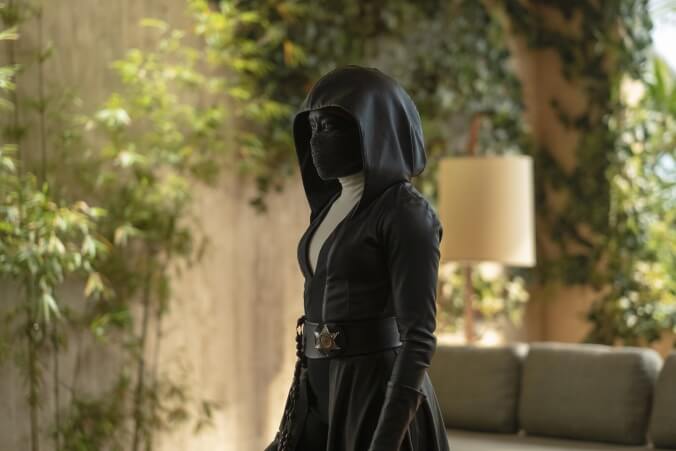
Watchmen always deserved to be a miniseries. No one expected it to be this miniseries, a continuation untethered from theatrical run times, cinematic tidiness, or fidelity to the source material, arriving at something searing, surreal, and truly in the spirit of Alan Moore’s costumed-vigilantes-as-fascists philosophy—. Showrunner Damon Lindelof works from the blueprint (emphasis on “blue”) he set for : Like , Watchmen is a gutting, occasionally gut-busting contemporary parable set in the wake of a global catastrophe. But the psychic wounds inflicted by a Freudian space squid have nothing on the earthbound racism Watchmen exposes by unmasking American history, in sequences like ’s harrowing re-staging of the Black Wall Street Massacre and scripts like Cord Jefferson’s splashy mindfuck, “.” It’s a superhero show about so much more for a superhero-obsessed, so-much-more era, every episode an “Avengers assemble” roll call of onscreen excellence: Regina King, Jean Smart, Jeremy Irons, Louis Gossett Jr., Don Johnson, Tim Blake Nelson, Hong Chau. The pure moods of Trent Reznor and Atticus Ross’ score, the perfect air of mystique cultivated by Yahya Abdul-Mateen II, James Wolk’s shit-kicker accent, that panda mask, an army of disposable clones and their elegant pastries, the Dr. Manhattan dildo… it’s all enough to coronate Watchmen with one episode left in its remote-monitored chamber. Fingers crossed that the show has better luck with its landing than The Comedian did. [Erik Adams]Now available on HBO Now.
GET A.V.CLUB RIGHT IN YOUR INBOX
Pop culture obsessives writing for the pop culture obsessed.